“Be a first rate version of yourself, not a second rate version of someone else.” – Judy Garland
 One of my favorite things as a boy was not just riding the train into NYC, it was reading comic books based on NYC’s greatest heroes on the train to Gotham City. My scrawny, little body felt incredibly vulnerable walking through the streets of one of the best cities in the world, its tall shadows splashing all around me. My connection, fantasy if you prefer, to Gotham’s great heroes somehow gave me an extra degree of confidence. Perhaps it was the belief that I could one day be fearless like Superman, bold as Batman or as agile as Spiderman. The line between fantasy and inspiration is sometimes quite thin.
One of my favorite things as a boy was not just riding the train into NYC, it was reading comic books based on NYC’s greatest heroes on the train to Gotham City. My scrawny, little body felt incredibly vulnerable walking through the streets of one of the best cities in the world, its tall shadows splashing all around me. My connection, fantasy if you prefer, to Gotham’s great heroes somehow gave me an extra degree of confidence. Perhaps it was the belief that I could one day be fearless like Superman, bold as Batman or as agile as Spiderman. The line between fantasy and inspiration is sometimes quite thin.
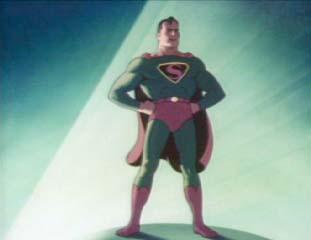 These were superheroes, characters dedicated to protecting the average public citizen from negative forces in our midst, typically those who would foster evil intent to harm the innocent. The “average” superhero operates from a clear moral code based on the premise that it is admirable and generally appropriate to risk one’s own personal safety or comfort in the service of protecting and supporting the health and well-being of others.
These were superheroes, characters dedicated to protecting the average public citizen from negative forces in our midst, typically those who would foster evil intent to harm the innocent. The “average” superhero operates from a clear moral code based on the premise that it is admirable and generally appropriate to risk one’s own personal safety or comfort in the service of protecting and supporting the health and well-being of others.
Heroes like Superman, Spiderman, Batman and Wonder Woman not only did good in the world, they also did their best to avoid actually killing the bad guys. The modus operandi was to stop bad people while not adding to their depravity by hurting them more than was necessary to stop their destructive activities. Most of the superheroes I grew up with seemed to submit to an unspoken understanding of this ethical consideration. It was almost as if there was some universal code of conduct that they all just knew.
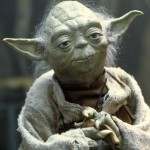 I spent at least ten hours each week as a boy receiving religious instruction, training in “upright behavior,” moral selflessness, and fostering the commitment to protect, nourish and nurture our particular religious community. Much like the “costumed crime fighters” without superhuman powers like Batman and Robin, folks like Moses mostly had to do good in the world without the aid of X-ray vision, superhuman strength or speed. Granted, with parting the Red Sea and all those plagues it would seem like he would be elevated to superhero status. However, we were taught that Moses was just the messenger, a conduit, for the will and power of God. Messenger and angel notably share the same word in Hebrew, but that’s for another day…
I spent at least ten hours each week as a boy receiving religious instruction, training in “upright behavior,” moral selflessness, and fostering the commitment to protect, nourish and nurture our particular religious community. Much like the “costumed crime fighters” without superhuman powers like Batman and Robin, folks like Moses mostly had to do good in the world without the aid of X-ray vision, superhuman strength or speed. Granted, with parting the Red Sea and all those plagues it would seem like he would be elevated to superhero status. However, we were taught that Moses was just the messenger, a conduit, for the will and power of God. Messenger and angel notably share the same word in Hebrew, but that’s for another day…
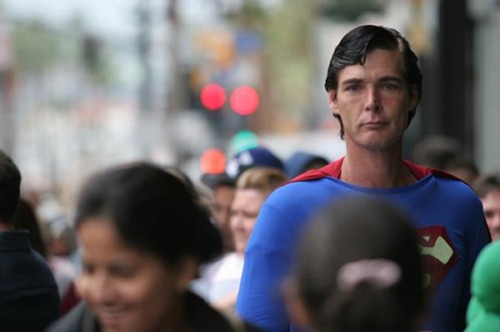 Another prototype for the common hero in my upbringing was that of the common person who develops her potential through self-development, overcoming obstacles and tapping the unique, mysterious powers that lay dormant within until, unleashed with purpose and intention, they are transformed forever. Examples of these heroes were Luke Skywalker, The Karate Kid, and even Dan Milman in the “Way of the Peaceful Warrior.”
Another prototype for the common hero in my upbringing was that of the common person who develops her potential through self-development, overcoming obstacles and tapping the unique, mysterious powers that lay dormant within until, unleashed with purpose and intention, they are transformed forever. Examples of these heroes were Luke Skywalker, The Karate Kid, and even Dan Milman in the “Way of the Peaceful Warrior.”
Luke Skywalker, for example, grew up a normal kid until a series of events occurred which challenged his beliefs about himself and the world. He is called to reframe what were childhood fantasies about greatness and enters a process of individuation and empowerment that serves to unleash his inherent, authentic power. This paradigm for rising above the low hum of mediocrity and working hard to develop the superhero within, this is the worldview that has most permeated my experience and outlook as an adult.
I have come to believe that we create our future by aligning our stories and our paths in the world with our soul’s purpose. I believe this is almost always accomplished in relationship with those qualities we are here to express and with our natural gifts, talents, beliefs, moral code, passions and essentially, those things that foster delight. The notion of one’s purpose existing in direct alignment with our innate, super-human gift is in many ways how I have integrated my love for comic books, fantasy and science fiction with my own work in the world. I sincerely believe that we each have a bit of superhero within us. It just takes some work to draw it up from the depths and what is more, it takes guts to wear that “S” on our chest.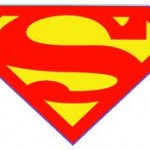
A common theme between the frames of most comic books and “other worlds” from the Hobbits’ shire to Luke’s home planet Tattooine, is the belief that we are all One; that there exists one all powerful force that binds the entire universe together. It is, as the Jedi believe for example, “an energy field created by all living things. It surrounds us, penetrates us, and binds the galaxy together.” This is a concept that most religions of the world espouse. Some refer to this energy as their deity, some refer to it as a life force, but the one thing nearly all religions agree with is that there exists a single unifying force.
In the Star Wars saga, for example, there are two sides to the Force: the dark side and the light side. As the great teacher/hero/role model, Yoda, suggests: “Beware the dark side… The dark side leads to fear. Fear leads to hate. Hate leads to suffering.” Good versus Evil is a common element throughout most religions. Think of the ubiquity of the serpent and the Garden of the Evil; how it has penetrated both non-fiction and fantasy for centuries. Think of the temptations Jesus faced in the desert. Issues of good versus evil, right versus wrong, permeate the doctrines of almost all organized religions. Most religions also attempt to differentiate between that which is right and wrong, thus establishing a moral code. 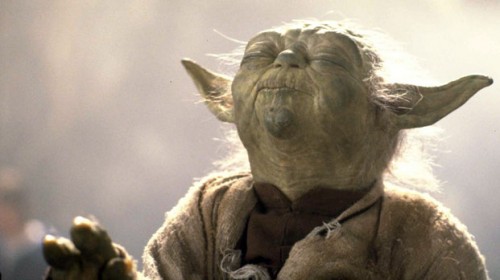
And yet, oftentimes organized religions assert moral codes that don’t resonate with every member of the group. What is more, outsiders, and sometime insiders of a specific religion, begin to judge the code by something believed to be more powerful, more innate: an intuitive ability to know what is right and wrong. This is the superhero’s innate knowing as much as the Jedi’s belief, for example, that morality, i.e. good and evil, are all axioms of the Force and that we must listen carefully to the Force so that we will always know the right thing to do.
So, beyond the unfurling capes and extended staffs of power we are left still wondering about these worlds we fabricate on paper in order to understand our own multi-dimensional universe. Do we, like the Jedi, possess a clear “intuitive ability” to discern between good and evil, right and wrong? If we tap into the Force, to Life, to God…, are we thus hooked in to the clarity of trans-planetary consciousness?
If humans created every paradigm under the sun, each worldview and doctrine from the Biblical to the Fantastic, then could it also be suggested that on some inherent level we each possess the ability to know everything?
 Yet…we struggle. We falter. We stray so far from clarity at times it would seem we are as far from the Knowledge of Good and Evil as anything imaginable. Or worse yet, if we really do have access to the ONE consciousness that discerns between right and wrong, good and evil and we still CHOOSE to do evil…mindfully, with intent…Oy.
Yet…we struggle. We falter. We stray so far from clarity at times it would seem we are as far from the Knowledge of Good and Evil as anything imaginable. Or worse yet, if we really do have access to the ONE consciousness that discerns between right and wrong, good and evil and we still CHOOSE to do evil…mindfully, with intent…Oy.
Consider the heroes we raise up in our culture today as teachers, role models, cautionaries…? For example, there is great discussion of late as to the legacy of Oprah Winfrey. Her recent departure from public television has opened the door for many to ponder her contribution to society and a great deal of negativity has been focused on her mission and delivery. Clearly, to many millions of men and women around the world, Oprah was, is and will be, a heroine. She has undoubtedly done much to enlighten, educate and inspire people to live their best lives and move through the places they are stuck.
What I find fascinating is the fervor with which some focus on those elements they feel she has missed her mark. She insulted or demeaned her guests, downplayed real issues and elevated other less important concerns, etc. Some critics have gone as far as to suggest that Ms. Winfrey was simply all about herself, her ego, her bank account, etc.
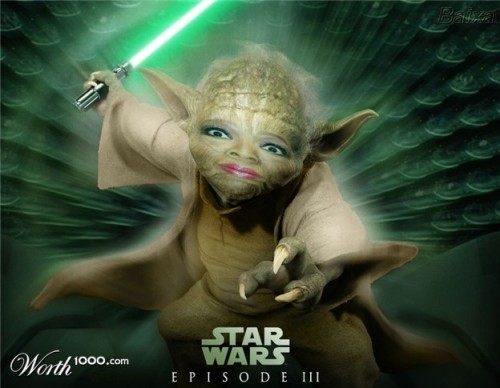 What I don’t understand is how any of us can truly determine what Oprah was hearing when she tuned in to her Source? While no one elected her to teach and disseminate wisdom, she volunteered herself as a teacher and we listened. Millions listened. Millions claim they felt more kinship with Oprah’s approach to life than the religious doctrines with which they were raised.
What I don’t understand is how any of us can truly determine what Oprah was hearing when she tuned in to her Source? While no one elected her to teach and disseminate wisdom, she volunteered herself as a teacher and we listened. Millions listened. Millions claim they felt more kinship with Oprah’s approach to life than the religious doctrines with which they were raised.
How do we know that Batman followed the proper moral code when he dropped out of the sky and dispensed justice. Wonder Woman never seemed distracted by questions of ethical responsibility, feminism, social justice, political corruptness, etc. She simply acted decisively based on her conscience and the code to do good in the world.
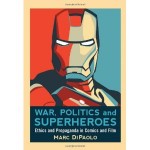 Marc DiPaolo, assistant professor of English and film at Oklahoma City University, explores the political leanings, sexual preferences and ethical underpinnings of superheroes found in popular culture. His book, “War, Politics, and Superheroes: Ethics and Propaganda in Comics and Film” studies popular superheroes from Superman to Wonder Woman, tracking their influence on and from feminism, Civil Rights and ethnic violence.
Marc DiPaolo, assistant professor of English and film at Oklahoma City University, explores the political leanings, sexual preferences and ethical underpinnings of superheroes found in popular culture. His book, “War, Politics, and Superheroes: Ethics and Propaganda in Comics and Film” studies popular superheroes from Superman to Wonder Woman, tracking their influence on and from feminism, Civil Rights and ethnic violence.
I’m not sure DiPaolo’s study of the morality code inherent in comic book superheroes is any less relevant than the eschatological diatribes I studied in Divinity School which deconstructed our planet’s great religious tomes.
Consider the short list of my historical heroes from the past century: Albert Einstein, Martin Buber, Mahatma Gandhi, Martin Luther King, Jr., Robert Kennedy, Carl Jung, John Lennon. One could easily make the case that each of these figures was somehow “tapped in” to a universal flow of consciousness, or Force. We can also, as many have spent countless hours so doing, uncover all the reasons that these people were not superheroes. They cheated, lied, molested, maligned, misrepresented until the cows came home. Yet, their contributions to our world have been profound and well above the baseline.
A rabbi once told me that the higher a person rises in their consciousness, the greater their shadows become; the more insidious are the forces enlisted that create challenges for them on their path. I can only imagine the shadows tormenting figures like Gandhi or Martin Luther King, Jr. One of the things I liked most about comic book superheroes was that they were in fact more realistic characters, full of contradictions and foibles. The Dark Knight, for example, struggled with his own demons as he actively fought the more clearly defined, external ones. Who knows what Oprah really struggles with when she is not in front of the camera? Does her good in the world become diminished because of what she’s not telling me? Does her good in the world become diminished because of something she says that rubs you the wrong way?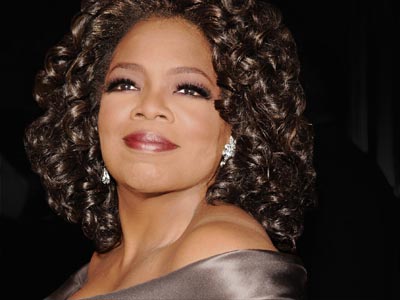
I consider my own journey to construct a life where I am in a position to support others in transforming their lives in a positive way. While at times it may be constructive and appropriate to disclose or share my own challenges around a particular area of interest for a client, there are plenty of instances when discussing my own struggles about a thing can actually be damaging. Does it make me a hypocrite if I encourage healing for a person who has enlisted my services in an area that I am also challenged? Does it take away from my ability to heal or the gifts I possess in helping others if I don’t disclose to you all of the things I have handled poorly in my own life?
On the contrary, I believe healing is a partnership. Healing emerges through the relationship between you and I. Transformation for you in your work translates to a beautiful likelihood that it will influence my own work and my own healing. Change is collaborative. Change is a factor of relational process.
I believe Oprah was engaged in a relationship with her viewers that was as imperfect as any of our personal relationships are beautifully, perfectly, imperfect. I can only hope that I helped Oprah heal as much as she helped me and millions of others heal.
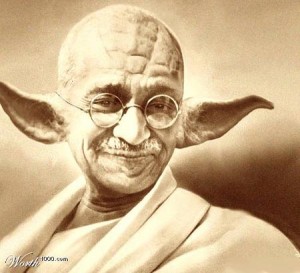 I know most of us can sense when there is a disturbance in the Force and I have never gotten a bad vibe from Oprah. She is a jedi as were Gandhi, MLK, and John Lennon. Rather than focus on the imperfections of our heroes (and potentially discounting their ability to do good in the universe as a result) I recommend leaning toward the Force and simply nodding mindfully when one feels a slight disturbance here and there. I hope you would do the same for me.
I know most of us can sense when there is a disturbance in the Force and I have never gotten a bad vibe from Oprah. She is a jedi as were Gandhi, MLK, and John Lennon. Rather than focus on the imperfections of our heroes (and potentially discounting their ability to do good in the universe as a result) I recommend leaning toward the Force and simply nodding mindfully when one feels a slight disturbance here and there. I hope you would do the same for me.

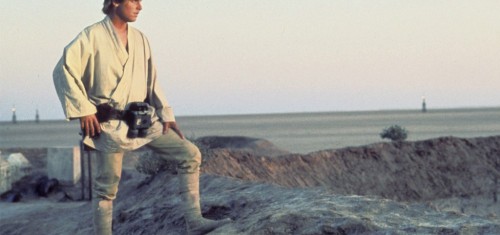
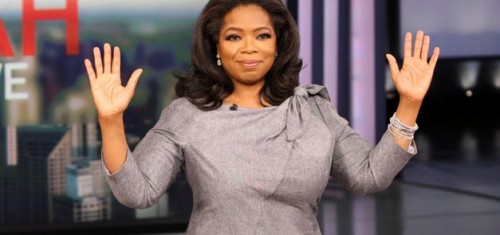
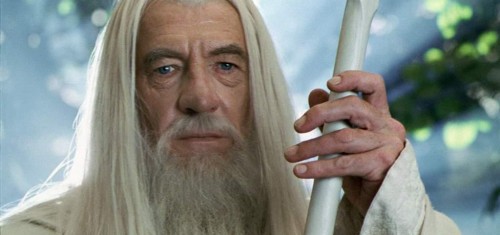

 We in the modern world of sound bytes and star crazed shallowness have a tendency to read or hear a 140 character, tweet sized encapsulation of another person’s perception of a thought, policy or persona and make our own determination of thumbs up or thumbs down in that instant.
We in the modern world of sound bytes and star crazed shallowness have a tendency to read or hear a 140 character, tweet sized encapsulation of another person’s perception of a thought, policy or persona and make our own determination of thumbs up or thumbs down in that instant.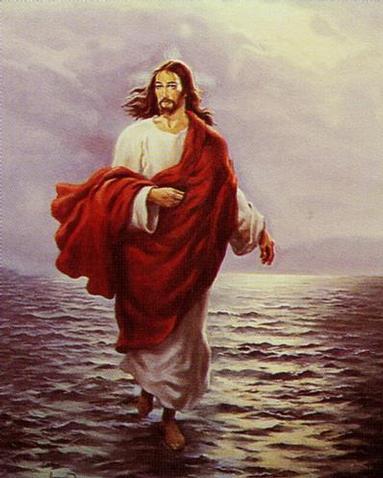 So, what’s the difference between “one who is called” and one who is “bat-shit crazy?”
So, what’s the difference between “one who is called” and one who is “bat-shit crazy?”


 A few years later we were in L.A. again for my cousin’s wedding and as we rode the elevator at the Beverly Hilton, Roseann Barr hopped on, alone and vulnerable to east coast star force newbies. She was even worse than Bruce Willis had been, squeezing out a snarl to our advances. It’s not like we tried to run off with her purse. Famous, yes. Best? Oh, come on.
A few years later we were in L.A. again for my cousin’s wedding and as we rode the elevator at the Beverly Hilton, Roseann Barr hopped on, alone and vulnerable to east coast star force newbies. She was even worse than Bruce Willis had been, squeezing out a snarl to our advances. It’s not like we tried to run off with her purse. Famous, yes. Best? Oh, come on.


 Jeffrey Sumber is changing the world, one relationship at a time. For over two decades, Jeffrey has worked to understand the human experience from as many angles as possible. As a successful psychotherapist, marriage counselor, and life coach, Jeffrey has worked with thousands of clients who strive to live their best lives.
Jeffrey Sumber is changing the world, one relationship at a time. For over two decades, Jeffrey has worked to understand the human experience from as many angles as possible. As a successful psychotherapist, marriage counselor, and life coach, Jeffrey has worked with thousands of clients who strive to live their best lives.